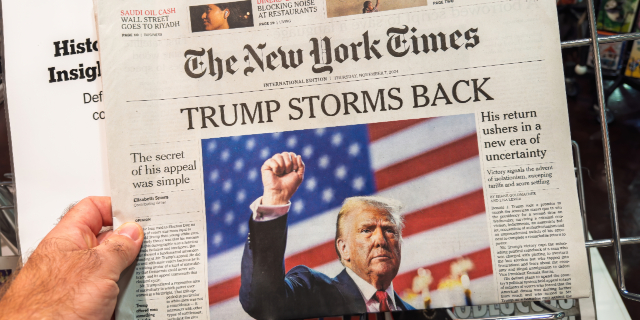Donald Trump’s return to the U.S. presidency has sparked significant discussions about its impact on Malaysia-China relations and their ties with the U.S., especially amid ongoing global trade tensions.
With Trump’s administration likely to maintain or intensify protectionist policies and tariffs targeting China, Malaysia stands to benefit indirectly.
The “China Plus One” strategy—where companies diversify operations outside of China—could see Malaysia attracting more investments from both Chinese and global firms.

According to Kashif Ansari, Group CEO of real estate firm Juwai IQI, who told This Week in Asia, “The US election results will drive new growth in Chinese business investment in Malaysia and South-East Asia.”
A recent Juwai IQI report found that Malaysia and neighbouring countries have also received significant investment so far this year in sectors such as automotive, real estate, and semiconductors, as Chinese capital shifts away from G7 economies to Asia.
The report also noted that nearly all Chinese investments so far this year have gone into building new facilities, marking a significant shift from pre-pandemic trends.
This strongly suggests that Chinese investors are increasingly eyeing other Asian countries, particularly Malaysia, Thailand and Vietnam, especially in industrial real estate, manufacturing, and electronics sectors, as the country offers a strategic location and cost-effective infrastructure.

They’re setting up operations here, hiring local talent, and establishing key production facilities in Malaysia.”
Kashif Ansari
On the other hand, Malaysia’s exports, particularly in electronics and machinery, might simultaneously gain traction as U.S. firms look to source goods outside China.
However, uncertainties surrounding heightened tariffs and potential trade barriers could also challenge global trade, impacting Malaysia’s export volumes to both China and the U.S.
This duality highlights the complex nature of the trade landscape under a Trump presidency.

At the same time, Chinese investors face a mixed outlook in the U.S. due to rising geopolitical tensions and stricter investment regulations.
This could drive some to consider Malaysia as a safer investment destination. Meanwhile, Trump’s energy policies and their potential to lower global oil prices could also affect Malaysia’s exports of mineral fuels, creating further challenges.
Overall, Trump’s presidency presents both opportunities and risks for Malaysia as it navigates its relationships with China and the U.S.
While Malaysia can leverage its position as a regional hub, the uncertainty of global trade dynamics underscores the need for strategic economic planning.
Juwai IQI was featured in South China Morning Post and The Star.
Juwai IQI is the world-renowned property company that provides insights on property, locally and globally.
Click below to get more expert property insights from our blog!
